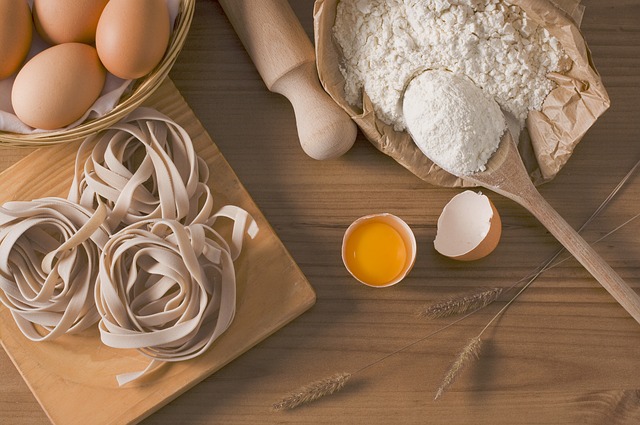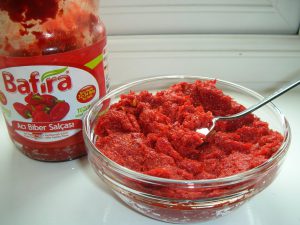You don’t have to love your boss who came to dinner, nor your kid’s friends who likely will gulp down the food and rush off. You don’t even have to cook for anyone else. The simple act of cooking enriches your soul.
Cooking empowers you. Let’s say you want to cook our easy baked eggplant eggplant in tomato sauce. When you shop for the ingredients, you look for a plump, heavy eggplant with taut skin. You want ripe, juicy tomatoes. Already your judgment is called into play. What’s the perfect cheese for this dish? How much salt and oregano does the sauce need?
You decide.
It’s not at all like picking up a package of eggplant parm from the frozen food section at the supermarket. You’re planning a dish the way you imagine it should taste and look, not the way food technicians in a manufacturer’s lab decided for you.
Home cooking connects you to the season and to where you live. It’s full summer now. This is the time to buy eggplants and tomatoes. Come winter, you may crave them, but they won’t be available, or at least, not as fresh and lovely as they are now. That’s alright. Staying aware of produce’s seasonal appearances and disappearances keeps you connected to the cycle of the year in a subtle, earth-bound way.
What’s special to your area that you can only get in season? To keep your small carbon footprint small, you turn aside from imported foods in favor of produce grown close to home. Of course, you can make ahead and freeze for later on. Almost every cookbook and food blog encourages you to can or preserve seasonal foods, and they all comment how “summer floods the kitchen” when you open a jar of your own tomato sauce or pesto in winter.
Handling food engages all the senses. I give my grandsons a cooking class every other week. One of the things I mention as we’re chopping and stirring is to pay attention to how food sounds. The freshest mushrooms release a crisp sound as the knife slices through them. A crackle coming from the oven may tell you that the cookies are getting over-baked.
It’s more than smell and taste; it’s if the cucumbers feel slimy (yech) or smooth, or if the apple has a bruise. Watch and listen, I tell them. The food tells you when it’s underdone, overdone or at the right point. I’m hoping that my grandsons carry this awareness over to life, as their lives expand into the future.
Cooking is therapeutic. The steady thud of the knife on the chopping block.The sway of the food as your spoon moves it in the pot. It’s a sensuous, soothing thing. Even washing the damn dishes can be a meditative act. Knowing that you’re producing something delicious – even if it’s for you only – gives you peace, but the process itself, if you’re willing to see it, is satisfying.
With cooking comes resourcefulness. Once you’re used to thinking in terms of producing food from your own hands, you find that improvising a meal is no big deal. Maybe someone drops in unexpectedly and stays until dinner time. Look in the fridge and the pantry: with a can of black beans (or beans you cooked and froze earlier), a cup of raw rice, garlic, seasonings, and some eggs, you can produce a decent meal of rice and beans and an omelet.
Even better if you get your friend to slice tomatoes and cucumbers for a salad.
Home cooking encourages patience. You might look at a recipe that requires an overnight stay in the fridge and think, “Oh, what, I’m supposed to wait eight hours?” A slow-cooked dish or one that requires several steps shows off your talent, but so does a simple bowl of strawberries and thickly whipped fresh cream, because you took five minutes to whip cream with a mixer instead of squirting industrially aerated, chemical-laden foam out of a can.
Every time you cook, it’s a new experience, even if it’s food you can almost cook with your eyes closed. You judge, taste, and judge again. You may need to improvise and substitute an ingredient you’re missing with another. You learn to give the heat and the pot and the ingredients the time they need. As in human relationships, cooking needs your awareness and time.
Then there’s caring. You look forward to the gleam of anticipation in the eyes of those at the table when you set a savory-smelling dish down in front of them. There’s your unspoken message: “I considered your preferences (and possible food sensitivities). I did my best to make you feel welcome. You’re important to me, and this is how I show it.”
Julia Child used to say, “Never apologize for what you serve.” I add, “Never inform your guests how much time, effort, or money it took to produce their meal.” You invested all that, true. But the food that leaves your hands is an offering, an offering to good feeling and good health. Enjoy!




